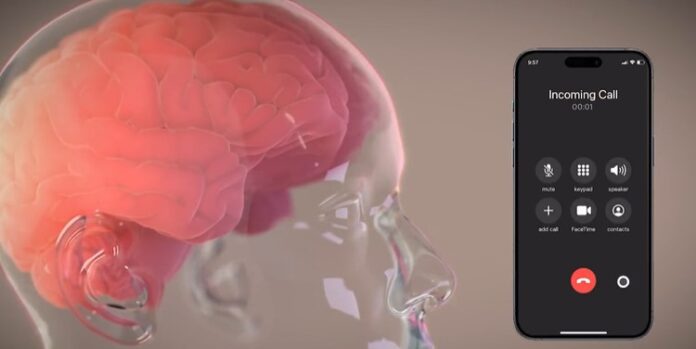Neuralink, Elon Musk’s brain chip startup, has implanted a brain chip in a human for the first time. The first product from Neuralink is called Telepathy, which enables control of your phone or computer, and through them almost any device, just by thinking.
The device uses neuron signals, which are delivered wirelessly to an app that can then interpret a person’s intentions. The initial results are showing the implant is registering spikes of brain cell activity. The ultimate goal of Neuralink is to help patients suffering from paralysis and other diseases. The company has faced scrutiny from animal rights activists over its allegedly inhumane treatment of animals.
How does “Telepathy” work?
According to Neuralink, Telepathy works by using a brain-computer interface (BCI) implant that is surgically implanted in a part of the brain. The implant has 64 threads with a total of 1,024 very small electrodes that can sense the brain’s electrical signals. The implant registers spikes of brain cell activity, which are delivered wirelessly to an app that can then interpret a person’s intention
The device uses neuron signals, and the initial results are showing promising neuron spike detection. The ultimate goal of Telepathy is to help patients suffering from paralysis and other neurological conditions. The first users will be those who have lost the use of their limbs. The device enables control of your phone or computer, and through them almost any device, just by thinking.
Neuralink’s Telepathy, enabled by a brain-computer interface (BCI) implant, has various potential applications, including:
- Assisting Paralyzed Individuals: The initial focus is on helping patients overcome paralysis and other neurological conditions. The device enables control of electronic devices, such as phones and computers, and potentially any device, through the user’s thoughts.
- Human-to-Human Telepathy: Elon Musk has suggested that the technology could eventually enable telepathic communication between individuals. However, this is a long-term goal and not the initial focus of the technology.
- Advantageous Relations with Artificial Intelligence**: Musk has also mentioned the potential for advantageous relations with artificial intelligence through the use of the technology.
The ultimate goal of Neuralink is to significantly enhance the capabilities of individuals with neurological conditions and to enable new forms of communication and interaction with technology.
Neuralink’s Telepathy, a brain-computer interface (BCI) implant, is designed to enable control of electronic devices through the user’s thoughts. The implant has 64 threads with a total of 1,024 very small electrodes that can sense the brain’s electrical signals. It registers spikes of brain cell activity, which are delivered wirelessly to an app that can interpret a person’s intentions.
The potential applications of Telepathy include assisting paralyzed individuals and, in the long term, enabling human-to-human telepathic communication. Compared to other neural interfaces, Neuralink’s Telepathy stands out due to its high electrode count and the potential for diverse applications, including assisting patients with paralysis and other neurological conditions.
Drawbacks of Neuralink “Telepathy”
Enables control of your phone or computer, and through them almost any device, just by thinking. Initial users will be those who have lost the use of their limbs. Imagine if Stephen Hawking could communicate faster than a speed typist or auctioneer. That is the goal.
The potential drawbacks of Neuralink’s Telepathy compared to other neural interfaces include:
- Ethical Concerns: There are ethical concerns related to the potential manipulation of signals and the right to privacy. The technology could be used to monitor thoughts, and if it fell into the wrong hands, it could be used to control individuals or groups, raising significant ethical implications[2].
- Socioeconomic Inequality: There is a concern that the widespread adoption of this technology could lead to increased inequality, where those who can afford the technology become more powerful and influential, while those who cannot afford it are left behind, unable to benefit from its potential advantages.
- Alienation of Non-Users: The potential for telepathic communication and the use of brain-computer interfaces may lead to a world where non-users are alienated, as they are unable to participate in the new forms of communication and interaction enabled by the technology[1].
These drawbacks highlight the need for careful consideration of the ethical, social, and economic implications of telepathic communication technology and the development of neural interfaces.



